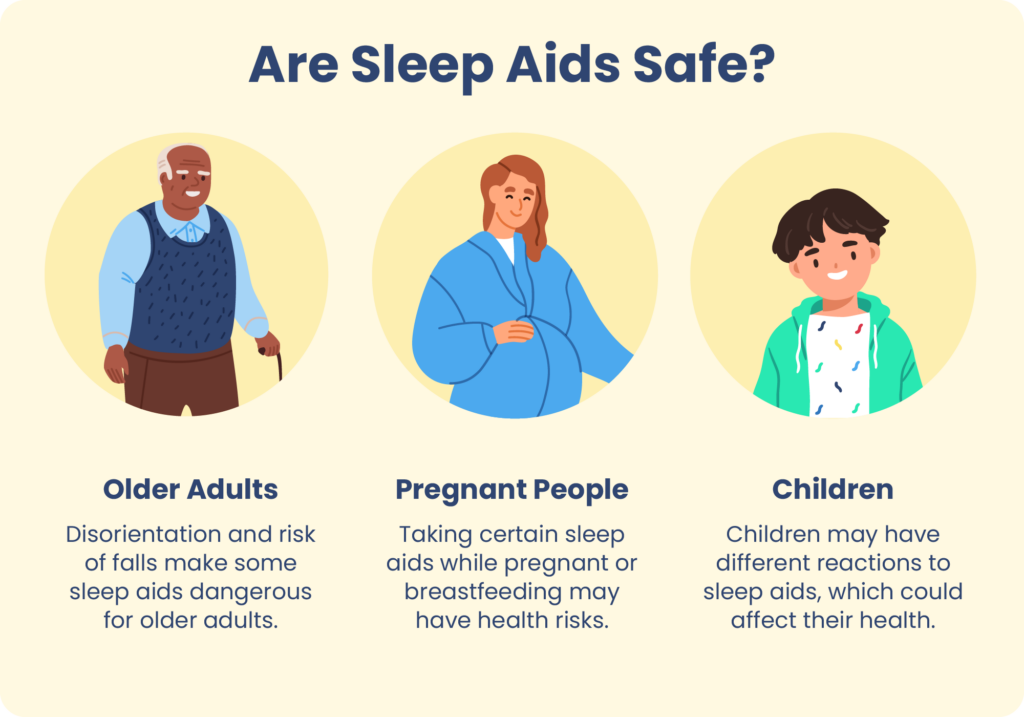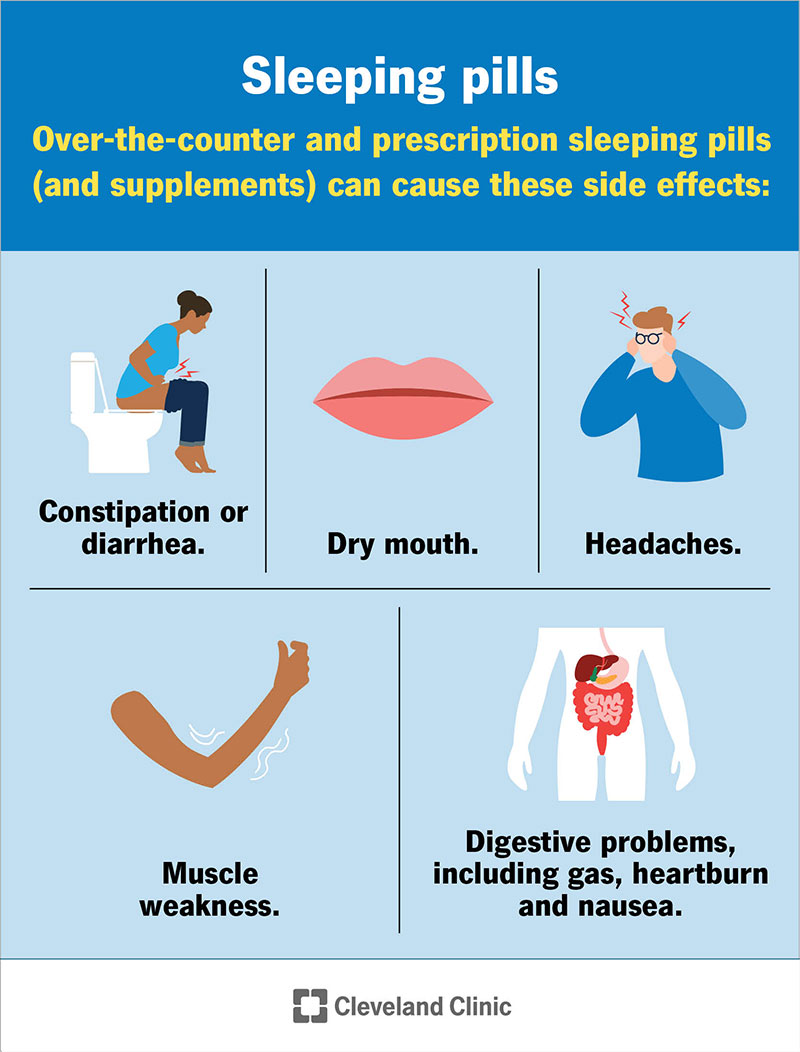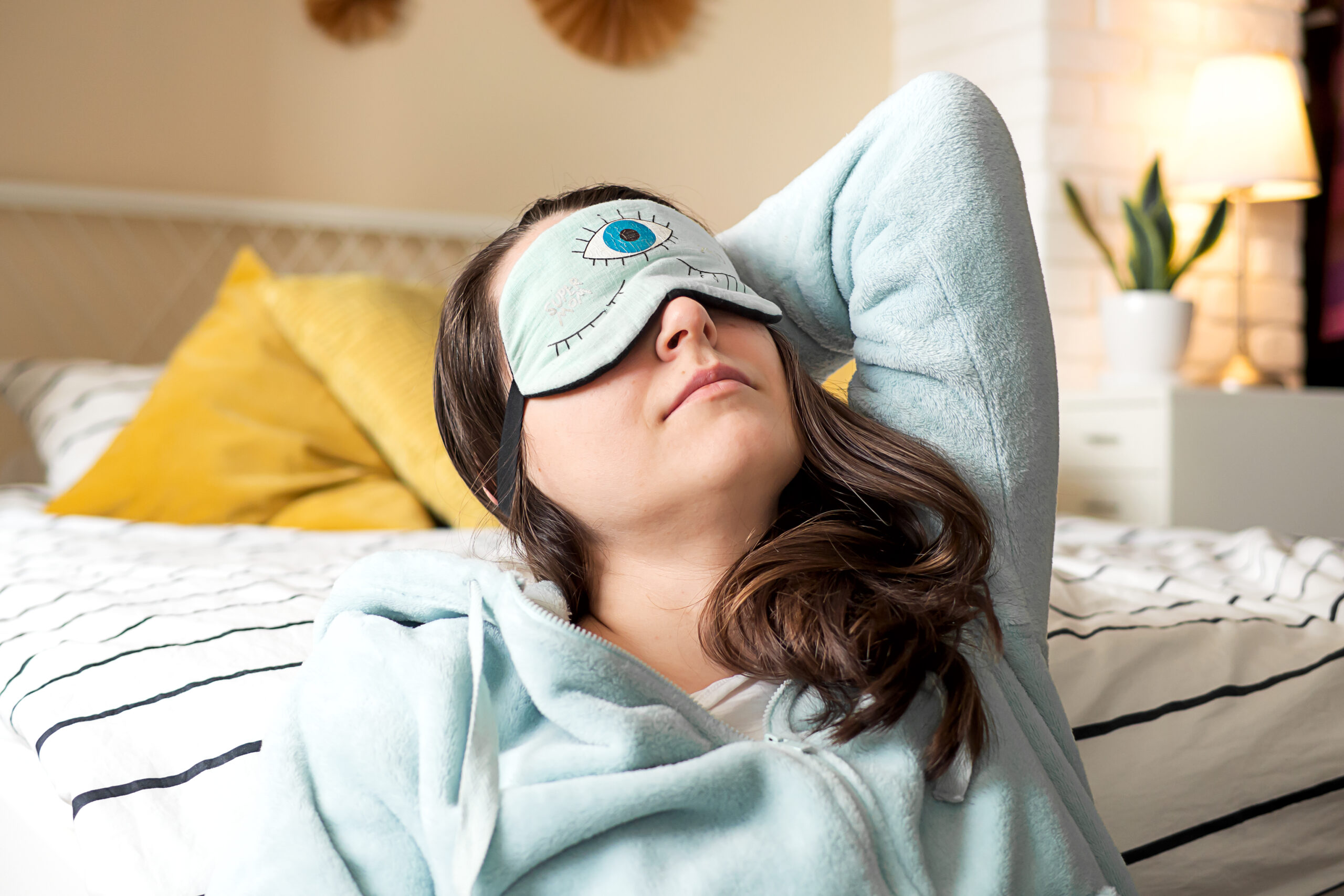
Blog
Sleep is vital for health and well-being. Many people struggle to get enough rest.
Prescription sleep aids can help but often come with side effects. Natural alternatives offer a gentler way to improve sleep quality. These options can soothe your mind and body without the risks of medication. You may find better rest with natural remedies that fit your lifestyle.
Exploring these alternatives opens up a world of possibilities. They can range from herbal teas to calming bedtime routines. Each method offers unique benefits, helping you find what works best. Whether you seek a more restful night or want to avoid medication, natural sleep aids provide a promising path. Discovering these options may lead to peaceful nights and refreshed mornings. Let’s dive into the world of natural sleep solutions.
Herbal Teas For Relaxation
Many people struggle to find peaceful sleep, often reaching for prescription sleep aids. But have you ever considered the power of herbal teas? These natural solutions are a gentle way to relax your mind and body, preparing you for a restful night. Imagine sipping a warm, aromatic brew and feeling tension melt away. Herbal teas not only taste delightful but also come with incredible health benefits. Let’s look at two of the best teas for relaxation: chamomile and lavender.
Chamomile Benefits
Chamomile tea is a classic choice for winding down. Known for its calming properties, it can help reduce anxiety. Have you ever noticed how peaceful you feel after a cup of chamomile? This soothing effect is due to apigenin, a compound that binds to brain receptors.
Drinking chamomile tea before bed can be a simple ritual to signal your body that it’s time to relax. Try adding a teaspoon of honey for sweetness. You’ll find that it not only enhances the flavor but also adds to the calming experience.
Why not make chamomile tea a part of your nightly routine? You might discover that it’s the gentle nudge your body needs to drift into slumber.
Lavender Infusion
Lavender is another herb celebrated for its relaxation benefits. The aroma alone is enough to calm your nerves. Imagine the scent wafting through your kitchen, creating a serene atmosphere.
Brewing a cup of lavender tea can be a delightful experience. Add a few dried lavender flowers to hot water and let it steep. The taste is subtly floral, making it a unique addition to your evening wind-down.
Lavender tea is also known for its potential to enhance sleep quality. Are you curious to see if it makes a difference for you? Try sipping it an hour before bedtime and observe how your sleep patterns change.
Embrace the natural path to relaxation with these herbal teas. Which one will you try tonight? Perhaps you’ll find the soothing comfort you’ve been seeking, right in your teacup.
Essential Oils For Sleep
Are you struggling to get a good night’s sleep without relying on prescription sleep aids? Essential oils might be the natural solution you need. These aromatic oils have been used for centuries to improve sleep quality and promote relaxation. If you’re looking to embrace a more holistic approach to sleep, essential oils could be your answer.
Using Lavender Oil
Lavender oil is well-known for its calming properties. A few drops on your pillow can create a serene atmosphere conducive to restful sleep. You might have experienced its soothing effects after a stressful day, where its gentle scent helped ease your mind.
Consider using lavender oil in a diffuser. This can fill your entire room with its tranquil aroma, enhancing your sleep environment. If you prefer direct application, try adding a couple of drops to your evening bath. This simple ritual can prepare you for a peaceful slumber.
Benefits Of Cedarwood
Cedarwood oil is another powerful ally for sleep. Its earthy scent can help you feel grounded and relaxed, making it easier to drift into sleep. If you’ve felt overwhelmed by racing thoughts at bedtime, cedarwood oil might be the comforting presence you need.
Apply cedarwood oil to the soles of your feet before bed. This practice is believed to enhance its calming effects throughout your body. You could also mix it with a carrier oil and massage it into your skin. Many find this tactile experience helps them unwind.
Why not create a bedtime ritual using essential oils? You might find that these natural alternatives transform your sleep from restless to rejuvenating.
Melatonin Supplements
Melatonin supplements are popular for those seeking natural sleep aids. This hormone regulates sleep-wake cycles. It signals the body when it’s time to sleep. Many turn to melatonin for its gentle nature compared to prescription drugs.
Understanding Melatonin
Melatonin is a hormone produced by the pineal gland. It helps control sleep patterns. Darkness triggers its production. Light exposure reduces it. This is why people sleep better at night. Supplements can mimic this natural process. They help the body know when it’s time to rest.
Choosing The Right Dose
Finding the right melatonin dose is crucial. Some need a small amount. Others might require a higher dose. Start with the lowest dose possible. Gradually increase if necessary. Too much melatonin can disrupt sleep. Always consider consulting a healthcare provider. They can offer guidance based on your needs.

Credit: www.healthline.com
Valerian Root Effects
Valerian root is a popular natural remedy for sleep issues. It’s known for its calming effects. Many people prefer it over prescription sleep aids. Valerian root is a plant that grows in Europe and Asia. Its roots are used to make medicine. Let’s explore how valerian works and some usage tips.
How Valerian Works
Valerian root affects the brain’s GABA levels. GABA is a chemical that helps calm the brain. Increasing GABA levels can lead to better sleep. This can make falling asleep easier. Valerian also reduces stress and anxiety. This makes it easier to relax at night. The plant compounds in valerian work together for these effects.
Usage Tips
Take valerian root 30 minutes before bedtime. This gives it time to work. Start with a low dose. You can increase it if needed. Use valerian consistently for best results. Avoid combining it with alcohol or other sedatives. This can cause unwanted effects. Valerian is available in capsules, tea, and liquid extract. Choose the form that suits you best. Always consult a doctor before starting any new supplement.
Magnesium For Sleep
Magnesium aids sleep by calming the nervous system, promoting relaxation. It serves as a natural alternative to prescription sleep aids, offering a gentle solution. This mineral supports a restful night’s sleep and helps maintain a healthy sleep cycle.
Magnesium is a crucial mineral for relaxation and sleep. Many people lack it. This deficiency can lead to sleep issues. It plays a role in nerve function and muscle relaxation. It helps regulate melatonin, the sleep hormone. Including magnesium in your diet may improve sleep quality. Let’s explore its benefits and how to incorporate it.
Magnesium Benefits
Magnesium helps calm the nervous system. This can ease anxiety and stress. Stress reduction leads to better sleep. It also helps regulate neurotransmitters. These chemicals send signals between the brain and body. Balanced neurotransmitters support restful sleep. Magnesium can help reduce insomnia symptoms. People with low magnesium levels often sleep poorly. Increasing magnesium intake may improve sleep patterns.
Incorporating Magnesium
Diet is a natural way to get magnesium. Foods rich in magnesium include leafy greens, nuts, and seeds. Whole grains and legumes also provide magnesium. Consider adding these foods to your meals. Supplements are another option. Consult a healthcare provider before taking supplements. Follow recommended dosages to avoid side effects. Epsom salt baths can provide magnesium through the skin. This method also promotes relaxation. Try these methods to boost magnesium levels for better sleep. “`
Mindfulness And Meditation
In the quest for better sleep, many people are turning to natural alternatives to prescription sleep aids. Among these, mindfulness and meditation stand out for their ability to promote relaxation and enhance sleep quality. These practices focus on calming the mind and reducing stress, making it easier for you to drift off into restful sleep. Imagine ending your day with a sense of peace instead of tossing and turning. Let’s dive into how meditation practices and mindfulness techniques can transform your nights.
Meditation Practices
Meditation doesn’t require a fancy setup or extensive training. You can start with simple practices right at home. Try sitting quietly and focusing on your breath. Feel the air as it moves in and out. This can quiet the mind and prepare your body for sleep.
Guided meditations are also an option. These can take you through a calming journey, often available as audio recordings. They can be particularly useful if your mind tends to wander. Listening to a soothing voice can anchor your thoughts and ease you into relaxation.
Consistency is key. Practicing meditation regularly can train your brain to relax more efficiently. Even a short session before bed can make a noticeable difference in your sleep quality. Have you tried adding meditation to your nightly routine?
Mindfulness Techniques
Mindfulness is about being present in the moment without judgment. It’s not about emptying your mind but rather acknowledging your thoughts and letting them pass. Imagine your thoughts as clouds drifting across the sky. You see them, but you don’t have to chase them.
Start by paying attention to everyday activities. Notice the sensation of water on your skin during a shower or the taste of your food. These small moments can anchor you in the present and reduce stress.
Mindful breathing is another effective technique. Focus solely on your breath, counting each inhale and exhale. This can help slow down racing thoughts and create a pathway to relaxation. Do you find your mind often racing at night? Mindful breathing might be your answer.
Mindfulness and meditation offer practical and simple ways to improve your sleep. By incorporating these techniques into your nightly routine, you can create a peaceful environment conducive to restful sleep. What small changes can you make today to enhance your sleep naturally?
Dietary Changes For Better Sleep
Struggling with sleep can be frustrating. You toss and turn, counting sheep, but nothing seems to work. Before reaching for prescription sleep aids, consider changing your diet. What you eat can significantly impact your sleep quality. By making simple dietary changes, you can improve your sleep naturally. Let’s dive into foods that can help you snooze better and ones you might want to skip.
Foods To Include
Adding certain foods to your diet can enhance your sleep. Think of foods rich in magnesium like almonds and spinach. Magnesium helps relax your muscles and calm your mind.
Include complex carbohydrates such as oatmeal and whole grain bread. They increase serotonin levels, the hormone that promotes sleep.
Consider consuming turkey or chicken. Both are high in tryptophan, an amino acid that boosts melatonin production, aiding in better sleep. Have you ever noticed how a Thanksgiving meal makes you sleepy?
Don’t forget cherries or cherry juice. It’s a natural source of melatonin. A glass before bed might be all you need to catch those Z’s.
Try herbal teas like chamomile or peppermint. These can soothe your nerves and prepare your body for restful sleep.
Foods To Avoid
Avoid caffeine-rich foods and drinks. Caffeine can disrupt your sleep pattern even hours after consumption. Say goodbye to that late-night coffee or chocolate bar.
Steer clear of spicy foods. They can cause indigestion, keeping you awake. Is that fiery burrito worth a sleepless night?
Watch out for high-fat foods. They may cause discomfort and bloating, making it hard to fall asleep. Opt for lighter meals in the evening.
Limit sugar intake. High sugar levels can lead to energy spikes and crashes, interfering with your sleep cycle.
Avoid alcohol before bed. It might initially make you drowsy, but can disrupt your sleep later in the night.
Changing your diet doesn’t require drastic measures. Small changes can lead to significant improvements in sleep quality. Are you ready to try these dietary tweaks and see the difference?

Credit: www.sleepfoundation.org
Exercise And Physical Activity
Exercise and physical activity play a crucial role in improving sleep. Engaging in regular physical activities can enhance sleep quality. It reduces stress and tires out the body, leading to deeper rest. Many find that incorporating exercise into their routine helps them fall asleep faster and stay asleep longer. Let’s explore the best exercises and the timing for optimal sleep benefits.
Best Exercises For Sleep
Not all exercises have the same effect on sleep. Some are particularly effective for promoting restful nights. Aerobic exercises like walking, cycling, and swimming can improve sleep. These activities increase heart rate and tire the body, making sleep more inviting. Yoga and stretching exercises relax the mind and body. They reduce stress and anxiety, leading to better sleep. Strength training builds muscle and can also aid in sleep quality. It elevates mood and decreases insomnia symptoms.
Timing Your Workouts
The timing of your workouts influences sleep quality. Morning workouts can regulate your sleep-wake cycle. They expose you to daylight, helping set your internal clock. Afternoon or early evening exercises are also beneficial. They can help relieve stress accumulated during the day. Avoid intense workouts close to bedtime. They may increase adrenaline and hinder sleep. A gentle walk or light stretching before bed can help relax the body.
Cognitive Behavioral Therapy
Cognitive Behavioral Therapy helps improve sleep patterns naturally by addressing negative thoughts and behaviors. This therapy can reduce reliance on prescription sleep aids, promoting healthier sleep habits.
If you’ve been searching for ways to improve your sleep without relying on prescription medication, you might want to consider Cognitive Behavioral Therapy (CBT). CBT is a structured, goal-oriented form of therapy that helps you identify and change negative thought patterns and behaviors. It’s been proven effective for a variety of issues, including insomnia. Imagine waking up refreshed after a full night of sleep, all because you worked with a therapist to adjust the way you think about sleep. ###
Cbt Techniques
CBT for insomnia involves several practical techniques. One common approach is sleep restriction therapy, which limits the time you spend in bed to improve sleep quality. You might find yourself initially sleeping less, but over time, your sleep efficiency increases. Another technique is stimulus control therapy, which helps you associate the bed with sleep rather than wakefulness. You might be asked to only go to bed when you’re sleepy and to get up if you’re unable to sleep. Cognitive restructuring is another key element. It involves challenging and altering unhelpful beliefs about sleep, such as “I’ll never get enough rest tonight.” This can be eye-opening and empower you to take control of your sleep. ###
Benefits For Insomnia
CBT offers numerous benefits for those struggling with insomnia. Unlike medication, CBT addresses the underlying causes of sleep issues, providing long-term solutions. You won’t have to worry about medication side effects or dependency. By changing your thought patterns and behaviors, you can significantly improve your sleep quality. This can lead to better mood, increased energy, and improved overall health. Consider this: a friend of mine struggled with insomnia for years. After trying CBT, she now sleeps soundly most nights. This transformative change has made her more productive and happier in her daily life. Have you ever wondered how much more you could achieve with better sleep? By investing time in CBT, you might just find the answer.
Creating A Sleep-friendly Environment
Crafting a sleep-friendly environment naturally can improve rest. Explore ten natural alternatives to prescription sleep aids. These methods include using herbal teas, maintaining room darkness, and practicing relaxation techniques. Each option offers a gentle way to enhance sleep quality without medication.
Creating a sleep-friendly environment is one of the easiest ways to improve your sleep quality naturally. Many people overlook the importance of their surroundings when trying to get a good night’s rest. But making a few simple changes can have a significant impact on how well you sleep.
Optimizing Bedroom Settings
Your bedroom should be a sanctuary dedicated to rest and relaxation. Start by evaluating your mattress and pillows. Are they comfortable and supportive? If not, it might be time for an upgrade. Consider the color of your bedroom walls. Soft, calming colors like blues and greens can promote relaxation. Keep your bedroom cool, ideally between 60 and 67 degrees Fahrenheit, to help your body maintain its natural temperature drop that initiates sleep. Lighting also plays a crucial role. Use blackout curtains to block out external light and consider using a dimmable lamp to create a soothing atmosphere before bed. A sleep mask can also be a great addition if total darkness is hard to achieve.
Technology-free Zones
Technology can be a major sleep disruptor. The blue light emitted by screens can interfere with your body’s production of melatonin, the hormone responsible for regulating sleep. Create a tech-free zone in your bedroom. Keep phones, tablets, and laptops out of the room, or at least put them away an hour before bedtime. If you use your phone as an alarm, consider switching to a traditional alarm clock to eliminate temptation. Embrace activities that calm your mind instead of tech distractions. Reading a book, meditating, or listening to soothing music can help you unwind. Have you ever noticed how a tech-free evening leads to a more restful night? Try it for yourself, and experience the benefits of disconnecting before bed.

Credit: my.clevelandclinic.org
Frequently Asked Questions
What Is The Most Effective Natural Sleep Aid?
Melatonin is the most effective natural sleep aid. It regulates sleep-wake cycles and improves sleep quality. Chamomile tea can also promote relaxation. Valerian root helps reduce anxiety, enhancing sleep. Lavender oil is calming and aids sleep. Ensure a comfortable sleep environment for best results.
What Can You Take Instead Of Sleeping Pills?
Consider natural remedies like melatonin, chamomile tea, or lavender oil for better sleep. Practice relaxation techniques, such as meditation or deep breathing. Establish a consistent sleep schedule and create a comfortable sleep environment. Regular exercise during the day can also improve sleep quality.
What Do Native Americans Use For Sleep Remedies?
Native Americans use natural herbs like valerian root and chamomile for sleep remedies. Lavender aids relaxation and promotes sleep. Sage and passionflower are also popular for calming effects. Herbal teas made from these plants are commonly consumed to improve sleep quality and reduce insomnia symptoms.
What Is The Healthiest Thing To Take For Sleep?
Melatonin supplements are often considered a healthy option for improving sleep. They regulate sleep-wake cycles naturally. Chamomile tea is also a popular choice for its calming effects. Always consult a healthcare professional before starting any supplement. Practicing good sleep hygiene is equally important for restful sleep.
Conclusion
Explore these natural sleep alternatives today. Find what works for you. Sleep peacefully without prescription aids. Always consult a doctor before starting new remedies. Your health matters most. Natural options offer gentle ways to improve sleep. Tea, exercise, and meditation can help.
Simple changes make a big difference. Better sleep leads to better days. Feel refreshed and energized. Try these options and see the positive impact. Embrace a restful night’s sleep naturally. Your journey to better sleep starts here. Stay consistent and patient for the best results.
Sweet dreams await.
Contents
- 1 Herbal Teas For Relaxation
- 2 Essential Oils For Sleep
- 3 Melatonin Supplements
- 4 Valerian Root Effects
- 5 Magnesium For Sleep
- 6 Mindfulness And Meditation
- 7 Dietary Changes For Better Sleep
- 8 Exercise And Physical Activity
- 9 Cognitive Behavioral Therapy
- 10 Creating A Sleep-friendly Environment
- 11 Frequently Asked Questions
- 12 Conclusion
Related posts
How Fast Does CBD Cream 5000mg Work on Sore Muscles?
Menthol and CBD: A Dynamic Duo for Pain Relief
Delta-8 vs Delta-9 THC: Which One Is Right for You?
CBD Cream 5000mg: Powerful Relief for Pain, Muscles & Joints
CBD for Arthritis Pain: What You Should Know
CBD Creams: Made with Hemp Oil for Pain Relief & Joint Support
Understanding Oral CBD vs Topical CBD: Which Works Best for You?
How CBD Cream Supports Your Body’s Natural Balance
CBD Cream for Arthritis Joint Pain: A Natural Way to Find Relief
Is CBD Cream the Secret to Glowing, Healthy Skin?
How CBD Cream Works on Your Skin
CBD Cream Costs: Finding the Perfect Balance Between Price and Quality
Table Of Contents
- 1 Herbal Teas For Relaxation
- 2 Essential Oils For Sleep
- 3 Melatonin Supplements
- 4 Valerian Root Effects
- 5 Magnesium For Sleep
- 6 Mindfulness And Meditation
- 7 Dietary Changes For Better Sleep
- 8 Exercise And Physical Activity
- 9 Cognitive Behavioral Therapy
- 10 Creating A Sleep-friendly Environment
- 11 Frequently Asked Questions
- 12 Conclusion
Recent Posts
Products
-
 CBD Cream 5000mg – Extra Strength Pain Relief Topical Rated 4.83 out of 5$33.93 – $49.99Price range: $33.93 through $49.99 — or subscribe and save up to 25%
CBD Cream 5000mg – Extra Strength Pain Relief Topical Rated 4.83 out of 5$33.93 – $49.99Price range: $33.93 through $49.99 — or subscribe and save up to 25% -
 CBD Sleep Gummies 2500mg With Melatonin - 100 count Rated 5.00 out of 5
CBD Sleep Gummies 2500mg With Melatonin - 100 count Rated 5.00 out of 5$69.99Original price was: $69.99.$34.99Current price is: $34.99. -
 3000mg CBD Oil Rated 5.00 out of 5$29.90
3000mg CBD Oil Rated 5.00 out of 5$29.90 -
 CBD Gummies 500 mg - 21 Gummies Rated 5.00 out of 5$19.90 – $23.00Price range: $19.90 through $23.00
CBD Gummies 500 mg - 21 Gummies Rated 5.00 out of 5$19.90 – $23.00Price range: $19.90 through $23.00



















